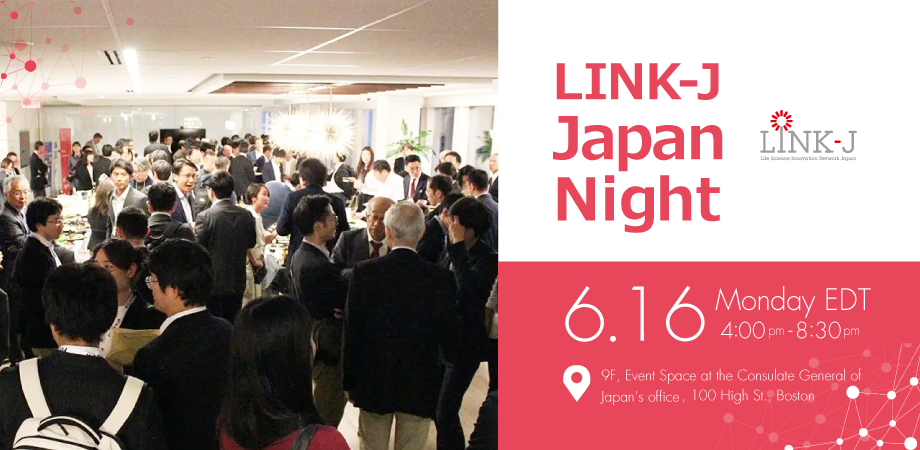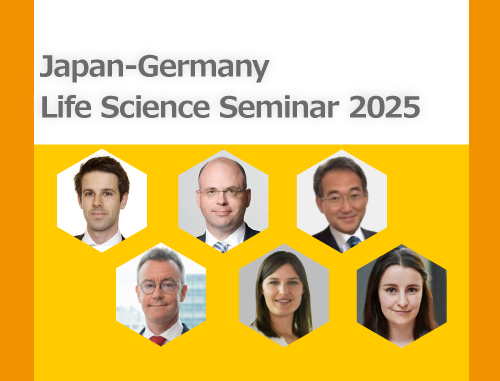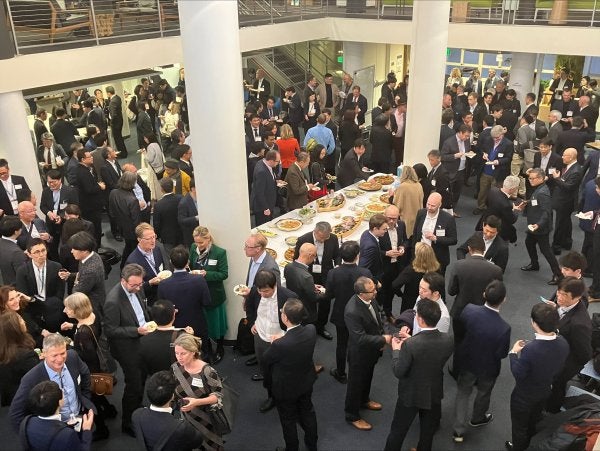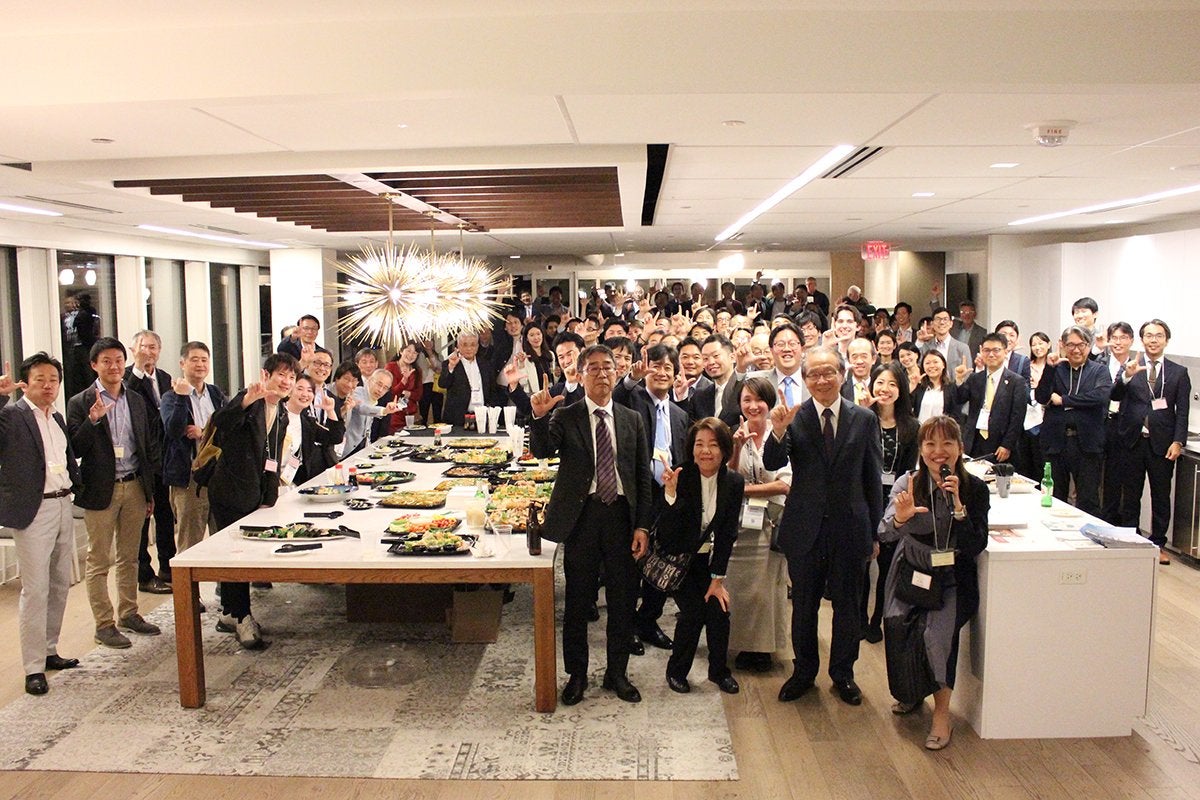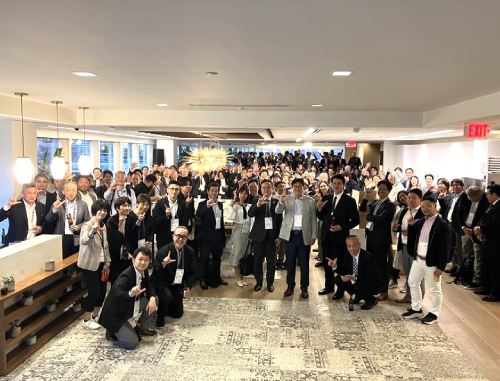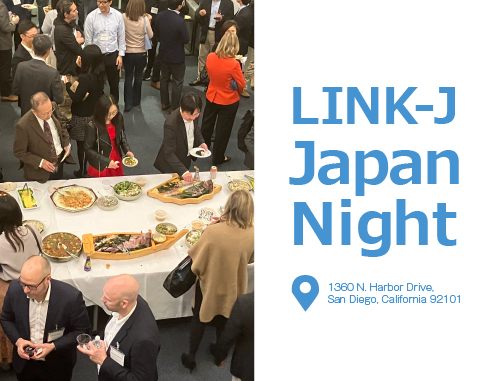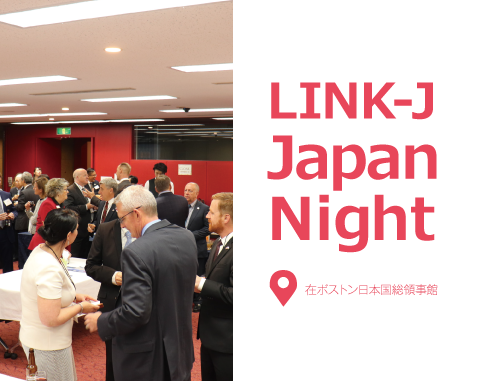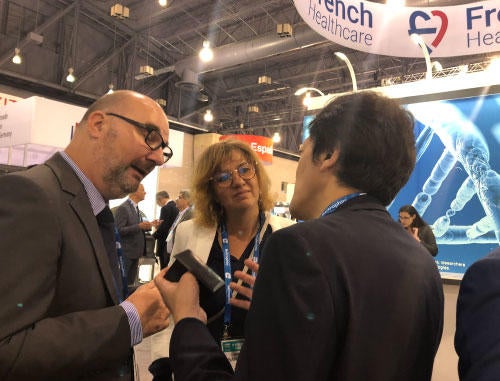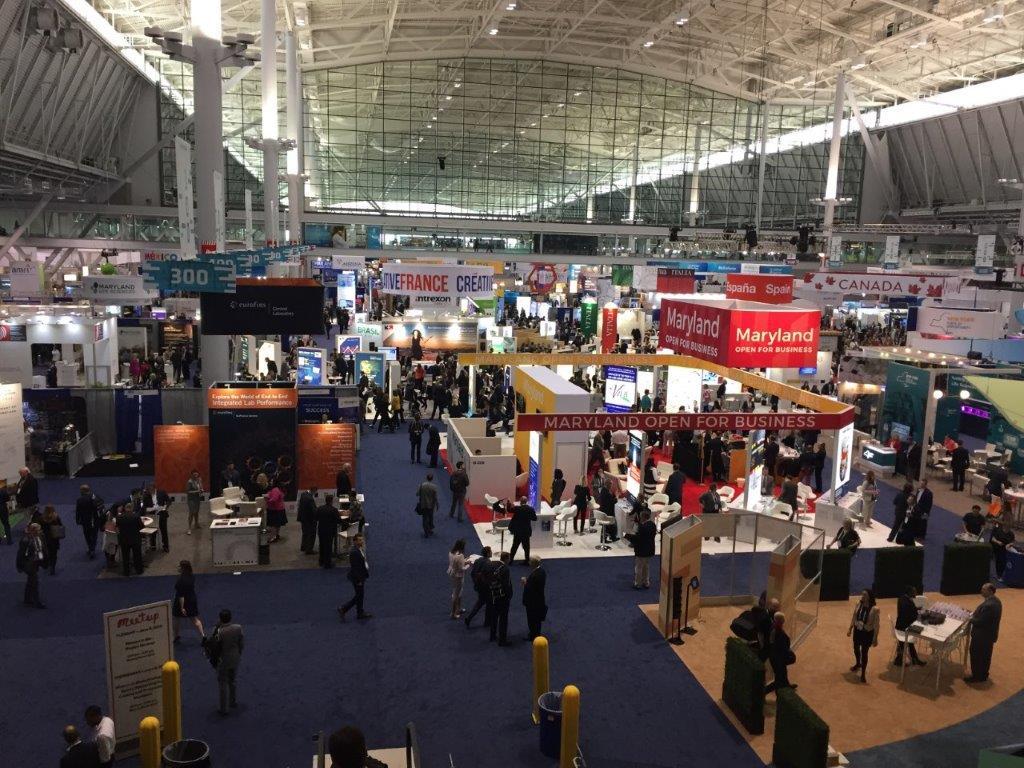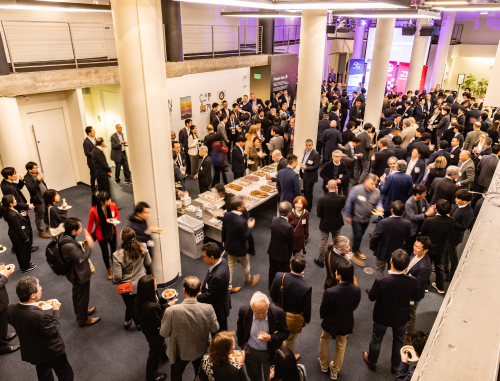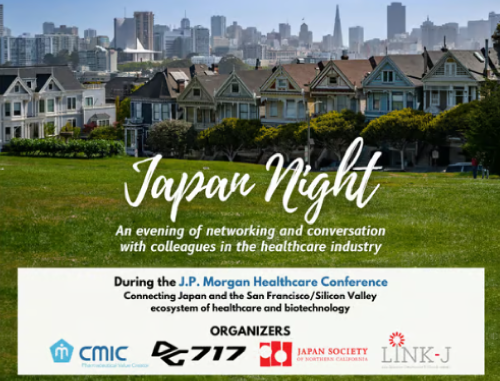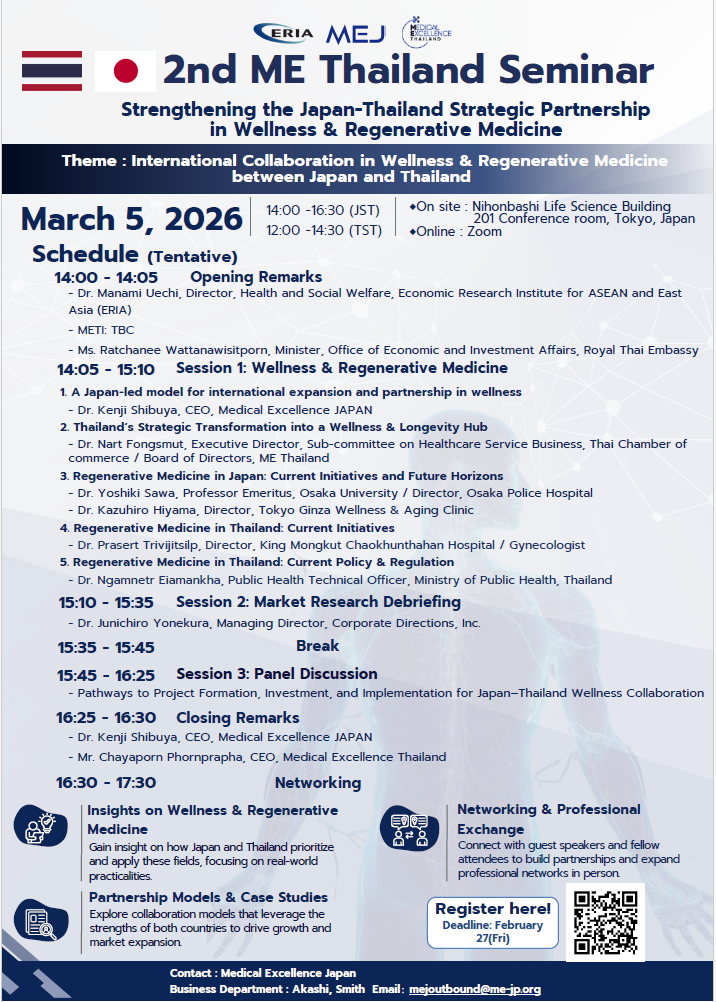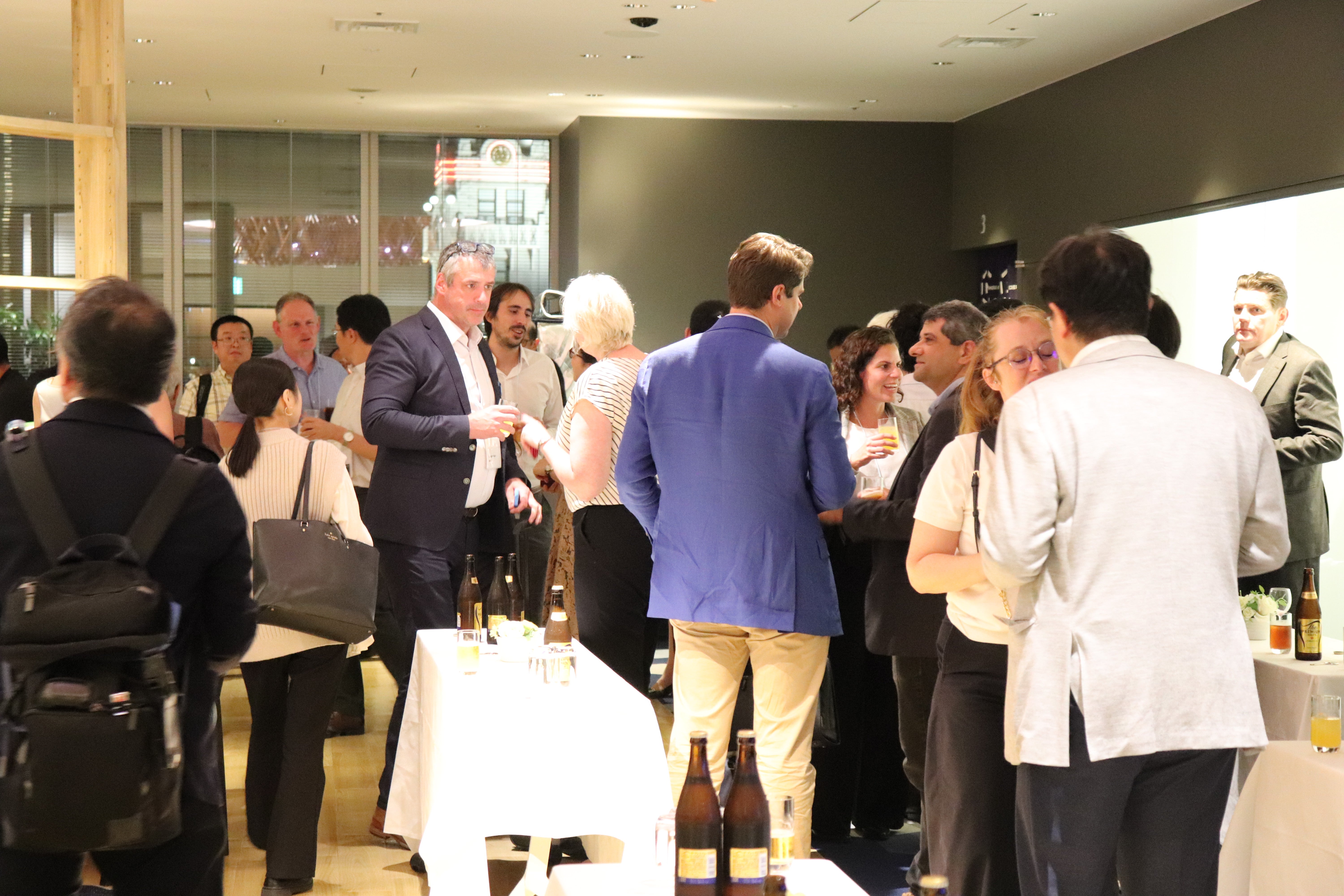During the BIO International Convention 2025, LINK-J Japan Night @Boston will be held on the 9th floor of the building where the Consulate-General of Japan in Boston is located.
This year's program includes an introduction to the activities of government-related agencies concerning the life sciences ecosystem, a joint seminar by LINK-J-BioLabs on the theme of the ecosystem, and a networking reception.
This event is highly popular every year and fills up quickly, so please register early.
*The registration deadline is [Friday, May 23rd, 5:00 PM Japan time]. If the event is fully booked, registration will close without waiting for the deadline.
*Due to security reasons, walk-ins on the day of the event will not be accepted. If you have even the slightest possibility of attending, please be sure to register in advance. We cannot accept walk-ins, even if you are accompanying a participant.
Language
English
Date: 4:00-8:30pm, Monday, June 16th, 2025 (EDT)
9F, Event Space at the Consulate General of Japan’s office, 100 High St., Boston
*The event will be held on-site only and will not be streamed online.
Program
The seminar and reception will be held at the same time.
You are free to move between them as the conference room and reception room are adjacent to each other.
| Reception room | Conference room |
| 3:30pm Door open (ground floor) | |
| 4:00-5:40 Seminar: "Introducing government-related organizations' initiatives regarding the life science ecosystem" | |
| 6:00-8:30 Networking Reception | 6:15-8:00 LINK-J-BioLabs Joint Event: "Linking ecosystems via LINK-BioBAY TOKYO" (provisional) |
| 8:30 Close | |
Program details
4:00-5:40pm "Introducing government-related organizations' initiatives regarding the life science ecosystem"
| Time | Agenda |
| 3:30pm | Door open |
| 4:00-4:05 | Opening Ikuo Hayashi (General Manager, LINK-J) |
| Part 1 | AMED Startup Support Hub Program |
| 4:05-4:15 | Introduction of the AMED program for supporting academia-launched medical startups Mr. Makoto Shimasaki(Ehrlich Partners Inc.) |
| 4:15-4:25 | National Cancer Center Seeds Acceleration Program, NCC SAP Dr. Katsuya Tsuchihara, MD, PhD(Director, Center for Promotion of Translational Research, National Cancer Center Japan) |
| 4:25-4:35 | A $20M Quantum Leap in Drug Discovery Prof. Koji Todaka(Professor/Vice-President, Realization Hub for Biomedical Innovation, Kyushu University) |
| 4:35-4:45 | Swift Implementation of Innovative Medical Seeds and Creation of a University-Startup Ecosystem through the Establishment of Keio University Startup Acceleration Center,Keio Biomedical Accelerator(KBA) Prof. Kenji Konomi(Professor, Clinical and Translational Research Center, Keio University Hospital, Deputy Director) |
| 4:45-4:55 | An acceleration center for globally oriented healthcare startups Dr. Takeshi Machino(Director, Translational Research Promotion Center, Tsukuba Clinical Research & Development Organization, University of Tsukuba) |
| 4:55-5:00 | "Polymer-based Nanomedicine For Reperfusion Injury in Stroke" Dr. Aiki Marushima, M.D., Ph.D.(CrestecBio Inc. CEO/Representative Director) |
| 5:00-5:10 | Introduction of the AMED's Drug Discovery Venture Ecosystem Project Dr. Takashi Uchida (Japan Agency for Medical Research and Development (AMED)) |
| Part 2 | JST National Network Construction Support Project |
| 5:15-5:25 | Introduction of the JST National Network Construction Support Project Dr. Hidetoshi Takeda (Kyoto University) |
| Part 3 | PMDA "PMDA's activities to promote global development of innovative products" |
| 5:25-5:35 | PMDA's activities to promote global development of innovative products Dr. Shinichi Okudaira (Regulatory Collaboration Division Director, Office of International Strategy and Planning, Pharmaceuticals and Medical Devices Agency) |
| 5:35-5:40 | Closing Ikuo Hayashi (General Manager, LINK-J) |
6:15-8:00pm "BioLabs x LINK-J Joint Event: Linking ecosystems via LINK-BioBAY TOKYO"
| Time | Agenda |
| 6:15-6:20pm | Opening LINK-J / BioLabs |
| 6:20-6:40 | Keynote speech Dr. Ryo Takeuchi (Director, Genome Editing at Excision BioTherapeutics) |
| 6:40-6:50 | Introduction to TIB CATAPULT/LINK-BioBAY TOKYO Hiroko Yasuga (Producer, LINK-J) |
| 6:50-7:30 | Fireside chat LINK-J / BioLabs / Dr. Ryo Takeuchi (Director, Genome Editing at Excision BioTherapeutics) |
| 7:30-7:35 | Guest presentation "Introduction to MIT Office of Corporate Relations" Dr. Gayathri Srinivasan (Executive Director, MIT Office of Corporate Relations) |
| 7:35-7:55 | Pitch by Japanese startups (3 minutes each) Biomy Inc. Crafton Biotechnology Co., Ltd. iXgene Inc. Kyoto Drug Discovery & Development Co., Ltd. LinqMed Inc. MiRNDa, Inc. Click here for company overview and matching information! |
| 7:55-8:00 | Closing (The networking reception will continue until 8:30pm) |
Speakers
| Dr. Takeshi Machino(Director, Translational Research Promotion Center, Tsukuba Clinical Research & Development Organization, University of Tsukuba) Dr. Machino, a board-certified cardiologist, earned his M.D. and Ph.D. in Medical Sciences from the University of Tsukuba. He began his academic career at the university in 2014 as an Assistant Professor, was promoted to Lecturer in 2018, and has served as Associate Professor since 2023. Since 2016, he has been affiliated with the Tsukuba Clinical Research & Development Organization (T-CReDO). He has led Research Studio, an inter-university platform for fostering medical entrepreneurs, since 2018. In 2024, under his leadership as Director of the Translational Research Support Center, the university was selected for the AMED Program for Supporting Academia-Launched Medical Startups. Presentation summary The University of Tsukuba promotes global healthcare innovation by integrating its Research Studio-based medical entrepreneurship program with a hands-on support initiative that provides gap funding. More than 50 experts from diverse fields serve as mentors, and faculty development opportunities are also offered to partner institutions. The program fosters commercialization through partnerships with venture capital firms and industry leaders. In collaboration with the UC San Diego, a new support framework has been established to accelerate the growth of globally oriented healthcare startups. Building on its experience on the U.S. West Coast, the University of Tsukuba is now exploring opportunities on the East Coast to help strengthen Japan’s startup ecosystem and promote global collaboration in healthcare innovation. | |
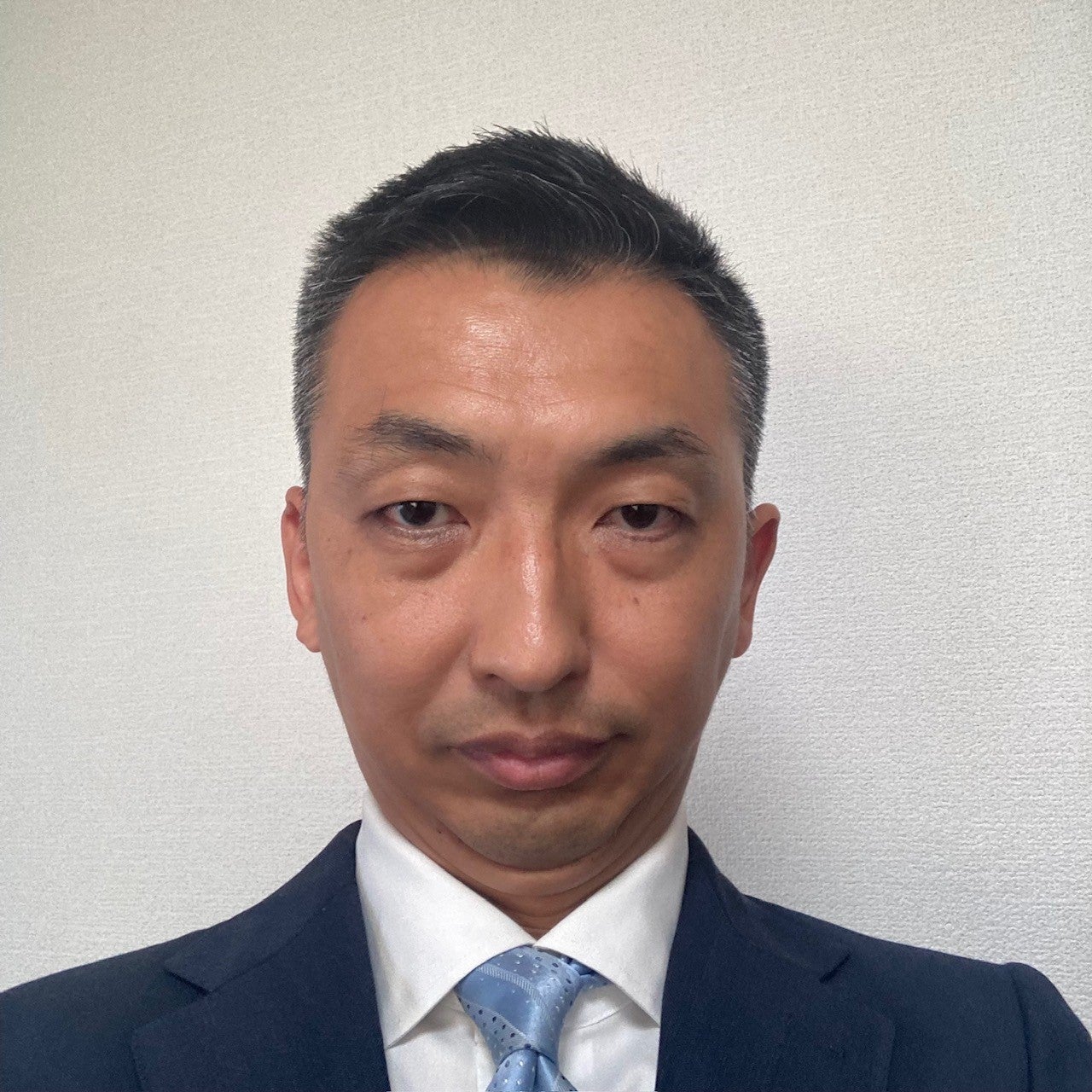 | Dr. Shinichi Okudaira (Regulatory Collaboration Division Director, Office of International Strategy and Planning, Pharmaceuticals and Medical Devices Agency) Dr. Shinichi Okudaira is currently Regulatory Collaboration Division Director at Office of International Strategy and Planning, Pharmaceuticals and Medical Devices Agency (PMDA). He is one of ICH management committee representatives of MHLW/PMDA. Also, he has contibuted to the establishment of PMDA Washington D.C. Office. He joined PMDA in 2013 and previously held the positions of Principal Reviewer in the Office of New Drug V (Oncology Drugs) and Deputy Review Director in the Office of Cellular and Tissue-based Products. He was also involved in the ICH Q12 EWG/IWG as an Expert. Presentation summary As more and more innovative drugs are being developed by overseas start-ups (especially in the U.S.), such drugs are needed to be developed rapidly also in Japan. To work on the issue, the PMDA established the office in Washington, D.C. in Nov 2024. In the office, PMDA will promote enhancement of pharmaceutical regulatory cooperation and information exchange on regulations with administrative organisations in the U.S., including the U.S. FDA on site. And for start-ups which locate in the U.S., PMDA will provide the information regarding Japanese regulations on reviews and post-marketing safety measures, as well as offer the services including early general development consultation and related services. PMDA believe that these measures will support to promote the development of innovative drugs and medical devices in Japan, contributing to making everyone’s lives brighter together. In the presentation, PMDA's activities to promote global development of innovative products are introduced. |
.png) | Dr. Katsuya Tsuchihara, MD, PhD(Director, Center for Promotion of Translational Research, National Cancer Center Japan) Dr. Katsuya Tsuchihara graduated from the Faculty of Medicine at Kanazawa University in 1993 and earned his Ph.D. from Tokyo Medical and Dental University in 2000. He has held positions as a researcher at the Ontario Cancer Institute, University of Toronto; Section Head of the Research Center for Innovative Oncology at the National Cancer Center Hospital East; and Chief and Deputy Director of both the Exploratory Oncology Research & Clinical Trial Center (EPOC) and the Center for Promotion of Translational Research (CPOT) at the National Cancer Center Japan. In 2024, he assumed the roles of Director at both EPOC and CPOT. He is a board member of the Japanese Cancer Association and the Japanese Board of Cancer Therapy. Additionally, he serves as a visiting professor at the Graduate School of Frontier Sciences, University of Tokyo. His work focuses on the clinical implementation of genomic analysis technologies and the development and operation of academia-led drug discovery infrastructures, including the establishment of a nationwide integrated clinico-genomic database. In recent years, he has also been actively engaged in building a drug discovery ecosystem through collaborations among academia, industry, and the public sector. Presentation summary The Seed Acceleration Program (NCC SAP) at the National Cancer Center aims to address challenges in Japan's startup ecosystem and create a unique system tailored to Japan by implementing the following initiatives: 1. Building a mentor network with experts from various fields 2. Establishing a network of CROs/CDMOs to support manufacturing and non-clinical development 3. Cultivating and securing CXO talent with a scientific background 4. Developing a support system for fundraising and commercialization in global markets, including the United States 5. Promoting company creation based on unmet medical needs NCC SAP will tackle the challenges outlined in points 1–5 through collaboration between industry, government, and academia. In particular, for points 3, 4, and 5, the support system will be strengthened through the following three initiatives: • Establishing a Japanese-style company creation model • Introducing an entrepreneurial in residence system • Building a support system for international expansion Through these efforts, we aim to create a virtuous cycle of basic research → startup → commercialization → reinvestment, thereby enhancing Japan's drug discovery capabilities. Additionally, leveraging the National Cancer Center's unique position as a high-volume center in the cancer field, we are working to build a nationwide system that can broadly support startups across the country. |
.jpg) | Prof. Kenji Konomi (Clinical and Translational Research Center Keio University Hospital, Professor, Deputy Director) Since 2022, he has been a professor at the Clinical and Translational Research Center, where he oversees translational research. In addition to supporting translational research in academia with a focus on regenerative medicine, he also develops medical devices as an ophthalmologist. Prior to returning to academia, he was involved in the consultation and review of regenerative medicine products and ophthalmic products at PMDA, the implementation of the Law on Ensuring the Safety of Regenerative Medicine and the revision of the clinical research guideline for gene therapy at the Ministry of Health, Labour and Welfare, and work on reimbursement and stable supply of medical devices. At the Schepens Eye Institute, a Harvard-affiliated facility in the United States, he conducted basic research on cornea, and since then, he has not only continued his studies as a clinician-scientist, but also engaged in eye bank activities to address the shortage of donors for corneal transplants and to establish medical standards in Japan. Presentation summary At Keio University, the Clinical and Translation Research Center has supported more than 400 medical-related medical seeds since October 2014, promoting social implementation from bench to bed. In addition, since the establishment of the Start-up Division in 2021, the Office of Innovation and Entrepreneurship, an industry-academia collaboration department, has developed support measures including a companion support program in collaboration with medical-related business companies, VC/CVC, a team of practitioner faculty with start-up experience, and university VC, securing management personnel and building a support personnel pool mainly composed of people from business industries. According to 2013 results by university, the number of university-launched start-ups was 291, ranking second, and the amount of funding was 51 billion yen, ranking first. The program for supporting academia-launched medical startups adopted by AMED in 2024 aims to establish a medical startup support center that combines the support system of translational research and university startup creation, and to continuously create university-launched startups that aim to commercialize world-class pharmaceuticals, medical devices, and regenerative medicine products. In addition, we will establish and operate the support infrastructure, and through these operations, work to improve the quality and efficiency of support and establish a profitable model, aiming to achieve self-sustainability after the project period. Our current efforts will be introduced in this session. |
.4.jpg) | Dr. Aiki MARUSHIMA, M.D., Ph.D.(CrestecBio Inc. CEO/Representative Director) Our technology enables the creation of polymer-based free radiacal scavenger that effectively regulate oxidative stress responses, particularly reperfusion injury in ischemic stroke patients. Based on the favorable pharmacokinetics, efficacy, and safety profile of our lead compound, CTB211, we can offer an innovative solution to reduce brain damage and improve neurological outcomes following mechanical thrombectomy for patients with cerebral large vessel occlusion. Recently, CrestecBio has been selected for the AMED University-based Medical Startup Support Program at the University of Tsukuba hub. We are currently conducting GLP toxicology studies and preparing for clinical trials in Japan and the U.S. We are actively seeking investors, regulatory partners, and pharmaceutical partnerships for clinical development and licensing of CTB211. |
.jpg) | Prof. Koji Todaka(Professor/Vice-President, Realization Hub for Biomedical Innovation, Kyushu University) Koji Todaka, MD, PhD, completed his medical training at Kyushu University, specializing in internal medicine and cardiology. He conducted basic research on heart failure and cardiac function at Columbia University in New York, earning a fellowship award from the American Heart Association in 1994. Upon returning to Kyushu University, he received his PhD in medical science in 1997 for his research on cardiac ventricular mechanics and heart failure. After several years as an interventional cardiologist, he served as a medical reviewer at the Pharmaceuticals and Medical Devices Evaluation Center (later the Pharmaceuticals and Medical Devices Agency, or PMDA) within Japan's Ministry of Health, Labour and Welfare, starting in 2002. He then returned to Kyushu University as an Assistant Professor of Cardiovascular Medicine. With the restructuring of Kyushu University Hospital's Center for Clinical and Translational Research in 2012, he was appointed Associate Professor and Vice-Director of the Center, subsequently being promoted to Professor in 2019 and Director in 2022. Since 2021, he has served as the Vice-President of the Realization Hub for Biomedical Innovation at Kyushu University and is committed to translational research. Presentation summary QUICK, the Quantum University Innovation Cycle from Kyushu, is a $20M initiative revolutionizing drug discovery. We source high-quality seed projects from a network of 26 universities (WAT-NeW), 18 universities (PARKS), and grant programs like the Medical Technology Co-Creation Grant. We boast a robust pipeline of groundbreaking discoveries originating from our own researchers. QUICK provides comprehensive support for medical startups, from seed discovery and funding to intellectual property management and clinical trial support. Our program addresses the critical "death valley" in drug development, offering access to state-of-the-art facilities, GLP consultation, and a dedicated team of over 100 professionals. We foster open innovation through partnerships with academia, industry, and government. A $20M MEXT grant fuels our efforts, complemented by significant private investment. Our international network spans 17 countries, facilitating clinical research and global expansion. We also benefit from strong local government support, including preferential treatment for entrepreneurs. We aim to establish 10 companies annually, providing up to $1M/year per startup. 80% of our funding, totaling $2.3B, comes from private sources, including VCs. We foster startup leadership through CxO talent matching, connecting promising individuals with 400 pre-CxO talents and local governments. Our entrepreneurship education program, in collaboration with Kyushu University and local governments, provides specialized training for medical entrepreneurs. Finally, QUICK leverages a robust network of private bio VCs and pharmaceutical companies, facilitating partnerships and accelerating exits. Join us in transforming drug discovery. |
.jpg) | Mr. Makoto Shimasaki(Ehrlich Partners Inc.) After receiving a Master of Science Degree in Graduate School of Pharmaceutical Sciences, Osaka University, I have over 30 years of experience in the pharmaceutical and venture capital industries. I began my career in non-clinical R&D in Japan, spending 9 years at Nippon Boehringer Ingelheim Co., Ltd., followed by 11 years mainly in CNS drug discovery research at Boehringer Ingelheim Pharma GmbH & Co. KG in Germany. In 2015, I transitioned to Mitsubishi UFJ Capital Co., Ltd., where I served as a Venture Capitalist, investing in approximately 20 companies for 9 years and focusing on launching new startups based on technologies of academia and pharmaceutical carve-out projects. I also implemented innovative open innovation program with Daiichi Sankyo and shared insights on the challenges faced by Japanese academia in drug discovery. Since March 2024, I have been working as a Program Officer for the AMED grant called academia-originated medical startup support program. I also established my own venture, Ehrlich Partners in November 2024 and began supporting startups and collaborating with overseas fund to contribute to the development of therapeutic programs and the establishment of drug discovery ecosystem in Japan. Presentation summary The Japanese government has been strengthening a support for startups and we have started the AMED program for supporting academia-launched medical startups from Oct. 2024. In this meeting, we introduce the outline of this program. (Tentative) |
Participation Fee
Free *Advanced registration required.
Capacity
200 people
Organizer
[Host]
LINK-J
[Support]
The Consulate-General of Japan in Boston
[Collaboration]
Yokohama City
Japan Agency for Medical Research and Development
Foundation for Biomedical Research and Innovation at Kobe
Contact
E-mail:contact@link-j.org
